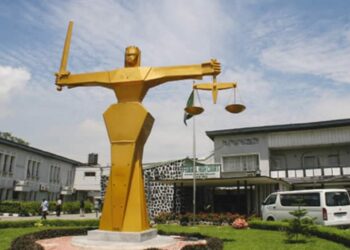Policymakers and stakeholders at the recently concluded African Internet Governance Forum in Abuja have voiced their concerns regarding the issue of cybercrime in Africa and how it is impeding the actualization of the African Union’s agenda for 2063.
In a communiqué issued on Thursday, it was revealed that cybercrime poses a significant threat to the realization of the African Union Agenda 2063.
The stakeholders have called for increased investments and enhanced collaboration among African nations to combat cybercrime effectively.
According to the communiqué,
- “Cybercrime remains a looming threat to the successful implementation of the AU 2063 agenda and the AU’s digital transformation strategy.”
- “The African Union and African governments must ensure adequate funding to combat cybercrime activities, promote international cooperation, and provide capacity building for lawmakers, law enforcement agencies, the judiciary, and other relevant entities.”
The AU Agenda 2063 serves as a blueprint for propelling Africa into a global powerhouse of the future through inclusive and sustainable development.
The communiqué further emphasized that “African nations should enforce cyber laws, adopt a people-centric approach, and implement checks and balances.”
Africa needs to concentrate on Internet governance_ Minister
During his address, Bosun Tijani, the Minister of Communications, Innovation, and Digital Economy, emphasized that, through the Internet Governance Forum, Africa needed to concentrate on shared norms, regulations, and decision-making processes that impact the evolution and utilization of the Internet.
He added that the forum provided a unique platform for the exchange of ideas and collaboration, which would contribute to the realization of the desired internet and serve as a means to empower all Africans.
Access to power is important in bridging the digital divide
Samuel George, a member of the Ghanaian parliament and the Secretary-General of the African Parliamentary Network on Internet Governance, also spoke, emphasizing that national governments must view access to power as a crucial component in bridging the digital divide in underserved and unserved areas.
Additionally, Shuiab Salisu, the Chairman of the Senate Committee on ICT and Cybersecurity, affirmed that the National Assembly was committed to providing legislative support to ensure Nigeria harnesses the potential of emerging technologies through the creation of enabling laws.














.gif)






